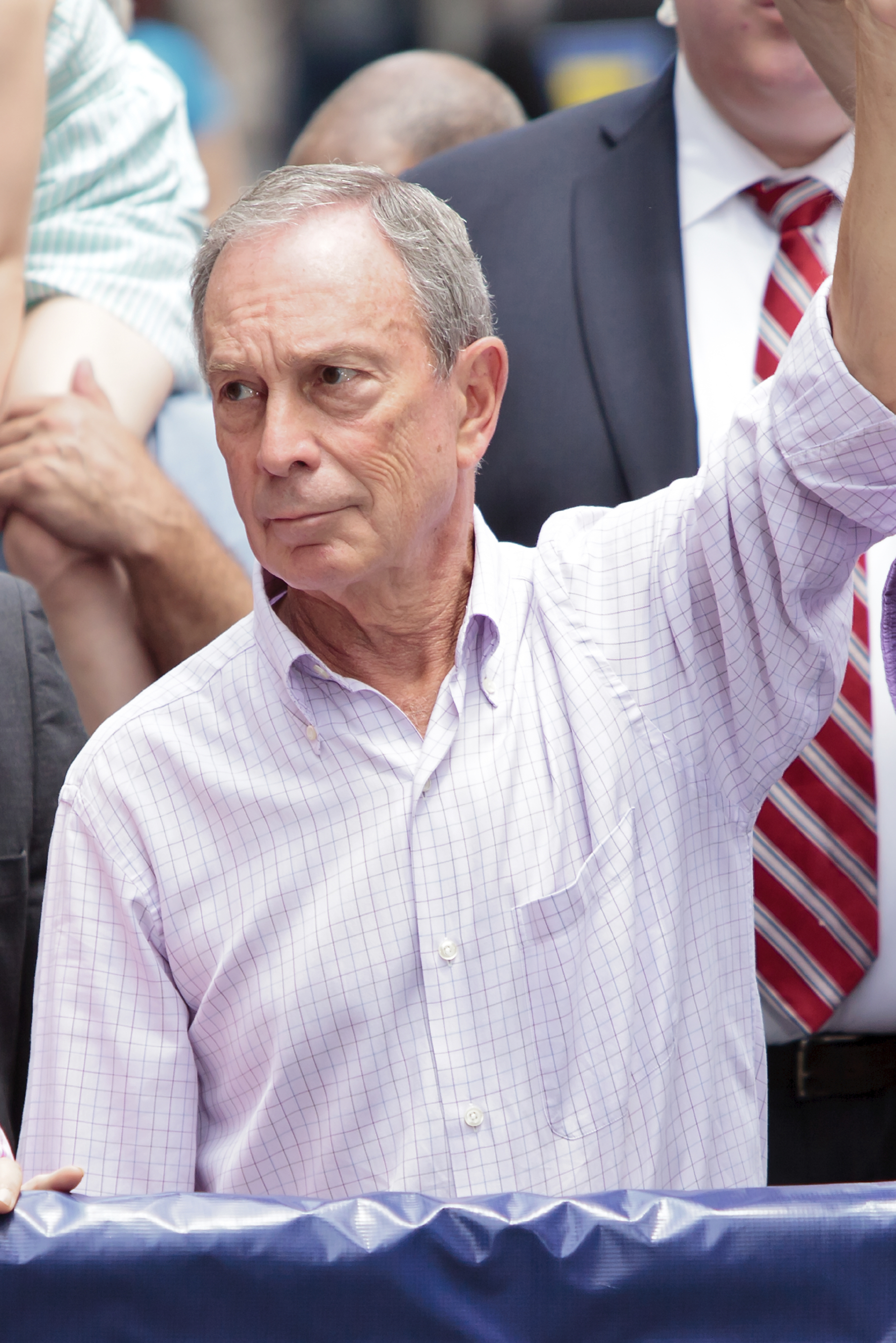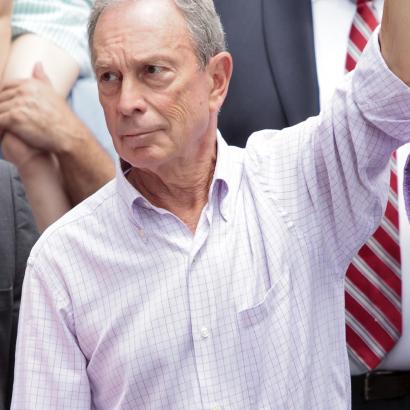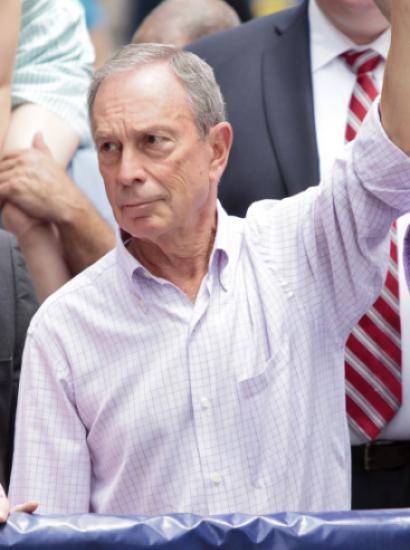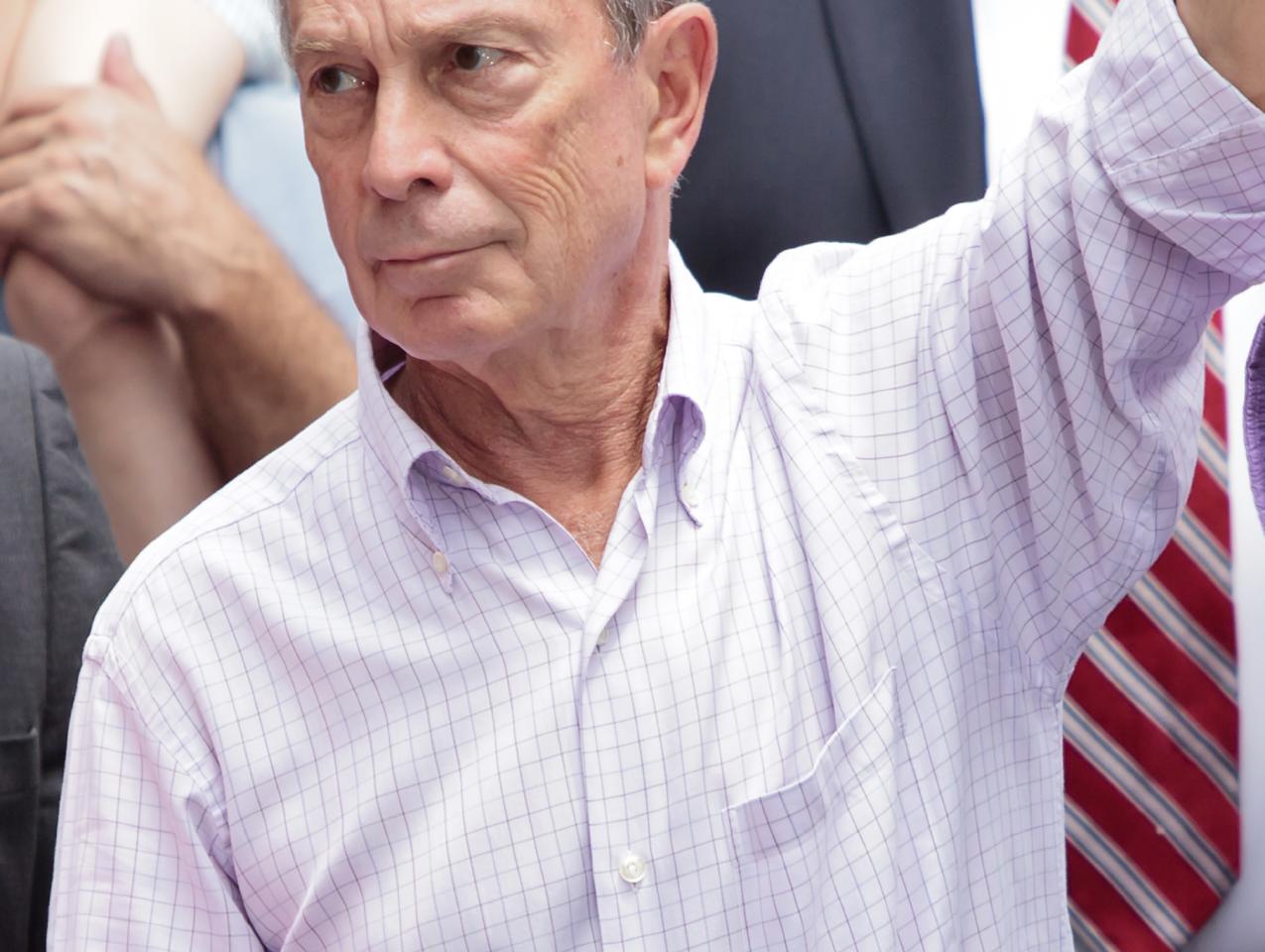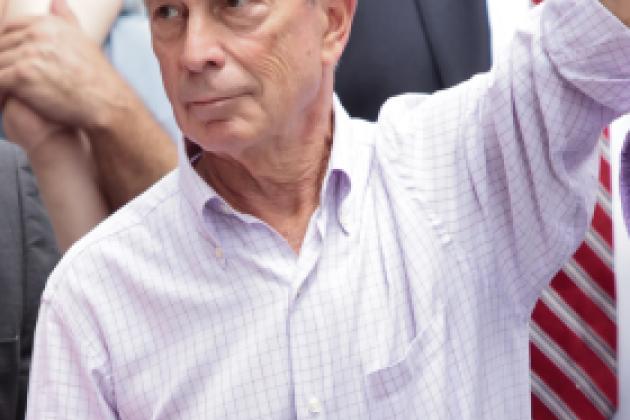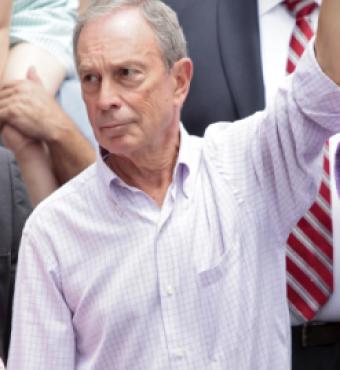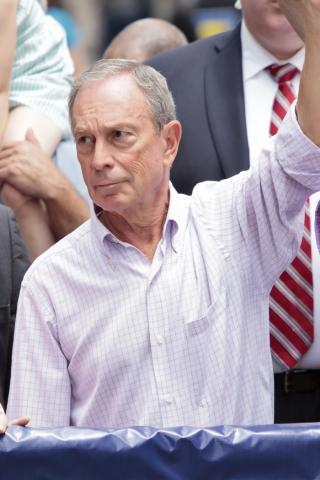- Politics, Institutions, and Public Opinion
Ironically, the increased democratization of American politics has led as to a procession of billionaire candidates for high office, including the current occupant of the White House. With the 2020 campaign coming into focus, it is rumored that former New York City Mayor Michael Bloomberg—net worth approximately $50 billion—is considering a run for president on the Democratic ticket. Recently, Bloomberg has spoken in favor of gun control and abortion, and against global warming. In 2018, he committed some $80 million to help Democrats regain control of the House of Representatives. Bloomberg is not the only Democrat considering a run. Hedge fund manager Tom Steyer, worth $1.6 billion, has taken several concrete steps toward a campaign for the White House, including media buys and town hall meetings. Steyer wants to impeach Donald Trump, fight global warming, and institute a living wage. Their politics aside, it is important to understand how campaign finance laws have created this new trend in American politics: self-funded campaigns for high presidential office.
Campaign finance law has bedeviled Supreme Court jurisprudence for over forty years, for it is no easy task to develop a legal regime that can impose various restrictions on campaign finances without running afoul of the First Amendment guarantee of freedom of speech. The two most obvious extreme positions do not make sense on this topic. It would be wholly improper to say that anyone can use wealth and influence as he pleases to advance his own business agenda. To see why, think of the position of a corporate executive who is bribed by one of his shareholders to take a position antithetical to the welfare of the corporation as a whole. Freedom of speech should be read as creating a presumption that people can use their own resources to advance their own political causes. But the freedom of speech, like the freedom of contract, is always subject to principled regulation, such as to protect against bribery and extortion. In addition, there are situations so fraught with risk that the safer course of action is to limit freedom of speech. This rationale underlies the 1939 Hatch Act, which prohibits federal employees from taking “an active part in political management or political campaigns,” and which in 1973 the Supreme Court upheld in U.S. Civil Service Commission v. National Association of Letter Carriers, AFL-CIO. The conflicts of interest that arise in these cases are too pervasive to respond to on a case-by-case basis. Only the blanket prohibition will work.
Modern campaign regulation does more than reach for this low hanging fruit. Instead, its objective is to regulate the way in which private money can be spent to influence the election campaigns which lie at the heart of the political process. The key early case on this subject, the Court’s 1976 decision in Buckley v. Valeo, had to consider three related provisions of the Federal Election Campaign Act of 1971 (FECA), which imposed what was, and with modifications, remains the most comprehensive scheme of campaign financing for the election of the President, Vice President, and all members of Congress.
In particular, FECA addressed First Amendment challenges to three different forms of campaign finance limitations. The first imposed criminal sanctions on any individual whose contributions to political campaigns exceeded $25,000 per annum for all candidates and $1,000 for any particular candidate. The second limitation concerned the amount of money that independent groups could spend for “express advocacy of candidates made totally independently of the candidate and his campaign.” The third category covered expenditures that a candidate makes on his or her own behalf—the sort made by Bloomberg and Steyer—to $50,000 for presidential candidates, with lesser amounts for candidates for the Senate and the House.
Any sensible approach would treat each of these three types of expenditures as close substitutes for the others, so that they all either stood or fell together. Unfortunately, the Supreme Court split the difference so that the First Amendment allowed the government to impose limits on campaign contributions, but not on independent bodies or self-financed campaigns.
Of immediate relevance here, the Court held that individual candidates can spend as much money as they please on their own campaigns on the ground that there was no risk of corrupt influence if a candidate were to spend a small fortune “vigorously and tirelessly” extolling his personal virtues and substantive positions. The point shows a serious set of institutional blinders, for now the obvious risk is that the candidate will use his wealth to curry favor from those who might otherwise be inclined to oppose his nomination. The situation is even worse on the ground because the sharp limitations on campaign contributions make it much more difficult for independent candidates to put together the funds needed to mount an effective campaign. To be sure, that serious obstacle need not be wholly insuperable, as candidates like Barack Obama and Bernie Sanders were able to turn large numbers of small contributions into considerable campaign war chests. But other candidates with less public visibility will have to remain on the sidelines, while billionaire candidates move ahead full tilt.
To fully grasp the implications of the Court’s decision in Buckley v. Valeo, it’s important to understand the distinction between campaign contributions and independent expenditures, which are those made by parties outside of the candidate’s campaign organization. For the Court, this distinction rested on what I consider a dubious edifice: independent expenditures are fully protected by the First Amendment. Without that constitutional protection, FECA “necessarily reduces the quantity of expression by restricting the number of issues discussed, the depth of their exploration, and the size of the audience reached.” In the Court’s view, these expenditures are protected for the most obvious reason. Money, after all, is needed to purchase the humblest circular or smallest election hall. The evident dangers of implicit coordination were shoved off to one side, and any risk in preventing corruption was thought to be too marginal to matter.
The Court refused to extend that same protective logic to campaign contributions to candidates. Instead it sustained these limitations on the utterly implausible ground that “a limitation upon the amount that any one person or group may contribute to a candidate or political committee entails only a marginal restriction upon the contributor’s ability to engage in free communication.” But there is no explanation whatsoever of why the number of dollars spent does not count as much in the one context as the other. If the point is that campaign contributions are valued solely for their symbolic effects, the same conclusion should apply to independent contributions. The untenable distinction thus has the powerful effect of undermining party discipline through these independent expenditures that sometimes do and sometimes don’t reflect the candidates’ wishes. Both should be treated the same, and it appears that the better position is to let anyone make whatever contributions they choose.
The situation is even more skewed than it might appear because the basic finance law also contains strict reporting and disclosure requirements, sustained in Buckley and subsequent cases. The point of these requirements is to let the public know who is behind any particular candidate, even if they impose high costs and ticklish compliance requirements. The individual candidate does not face a parallel burden with private expenditures.
At one time, there was perhaps a credible case for upholding these statutes on the ground that the public has the right to know who seeks to gain a candidate’s ear. But the rule never made any sense for small individual contributions that grant the donor no candidate access. And with the rise of the social media, the disclosures have decidedly become a double-edged sword, as well organized groups can single out contributors for retaliation and abuse. The secret ballot is regarded as a critical safeguard precisely because it protects voters from retaliation and abuse. It’s important to keep that idea in mind here, too; individual names should never be released even if a candidate is required publicly to specify in general terms the interest groups from which he or she has received support.
But to step back, the bigger point is that Buckley’s elaborate edifice of campaign finance law is one that we can do without. The progressives have long held the aspiration of limiting the influence of money on politics, both independent and corporate, but that is a hopeless pipedream. FECA does not cover any contributions made to lobby public officials on particular issues, to which some money will be redirected. Nor did the original version of FECA cover the explosive question of corporate expenditures. That topic was only addressed in the Bipartisan Campaign Reform Act of 2002 (BCRA), which prevented corporations and unions from making any electioneering contributions within 60 days of a general election or 30 days of a primary, including those made for Hillary: The Movie. Citizen’s United v. FEC. provoked an uproar when limitations on corporate electioneering expenses were rightly struck down in 2010 on the simple ground that the speech most deserving of protection is that made in anticipation of a primary or general election..
Citizens United should point the way. Quite simply, it is not possible to live with the Progressive ideal that we can always keep money out of politics. We live in a political environment of vast federal powers and weak individual property rights. The President and Congress have more power and discretion than ever. Elections can literally create, destroy, or transfer trillions in wealth. Money and influence will fill that financial void no matter what ungainly system of campaign finance is put into place. Billionaires like Bloomberg and Steyer may come and go. Some will actually get lucky. But throughout it all, the only effective cure to the problem of money in politics is to shrink the powers of the federal government, which will require a thoroughgoing, if unlikely, constitutional revolution.







